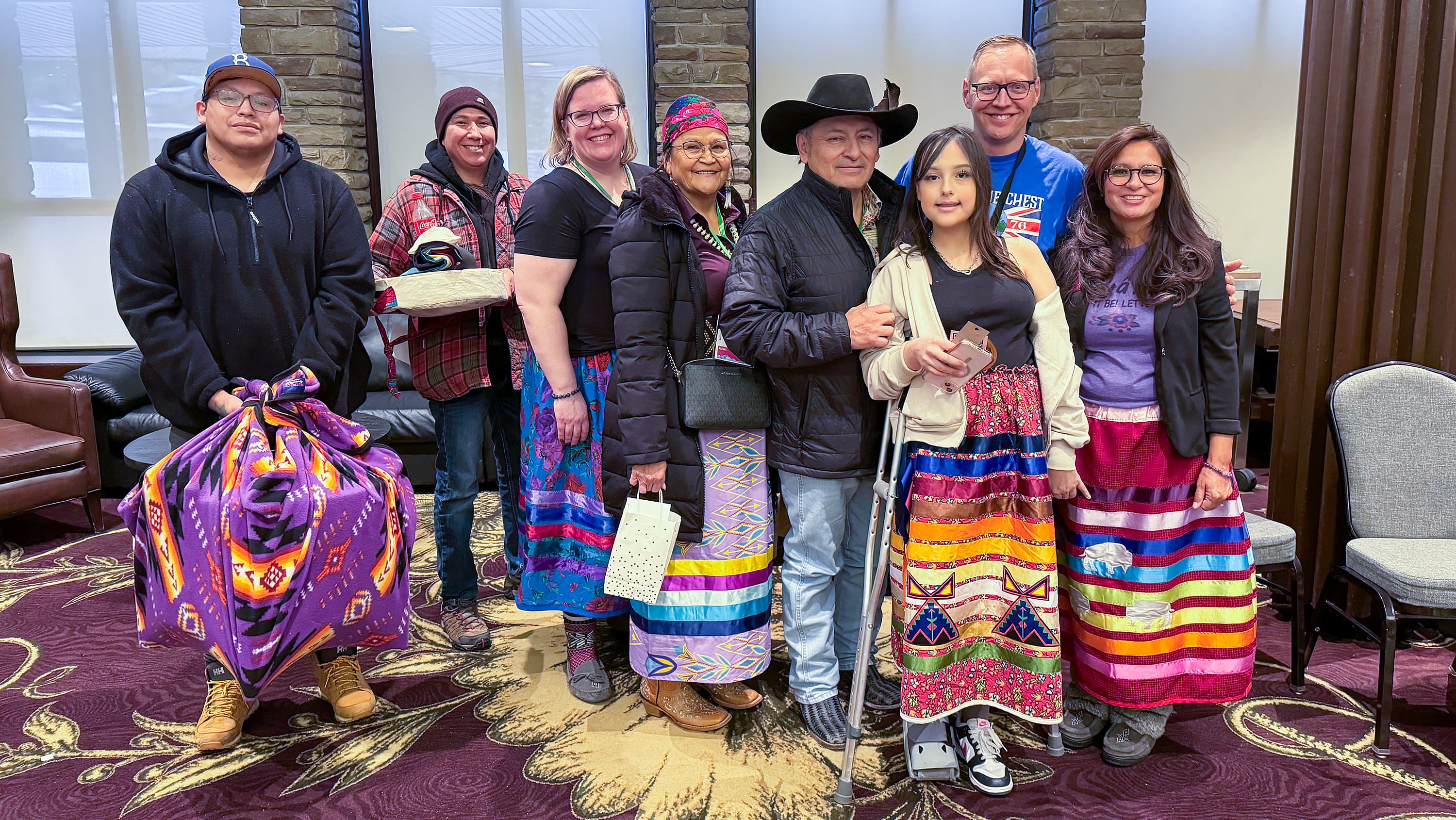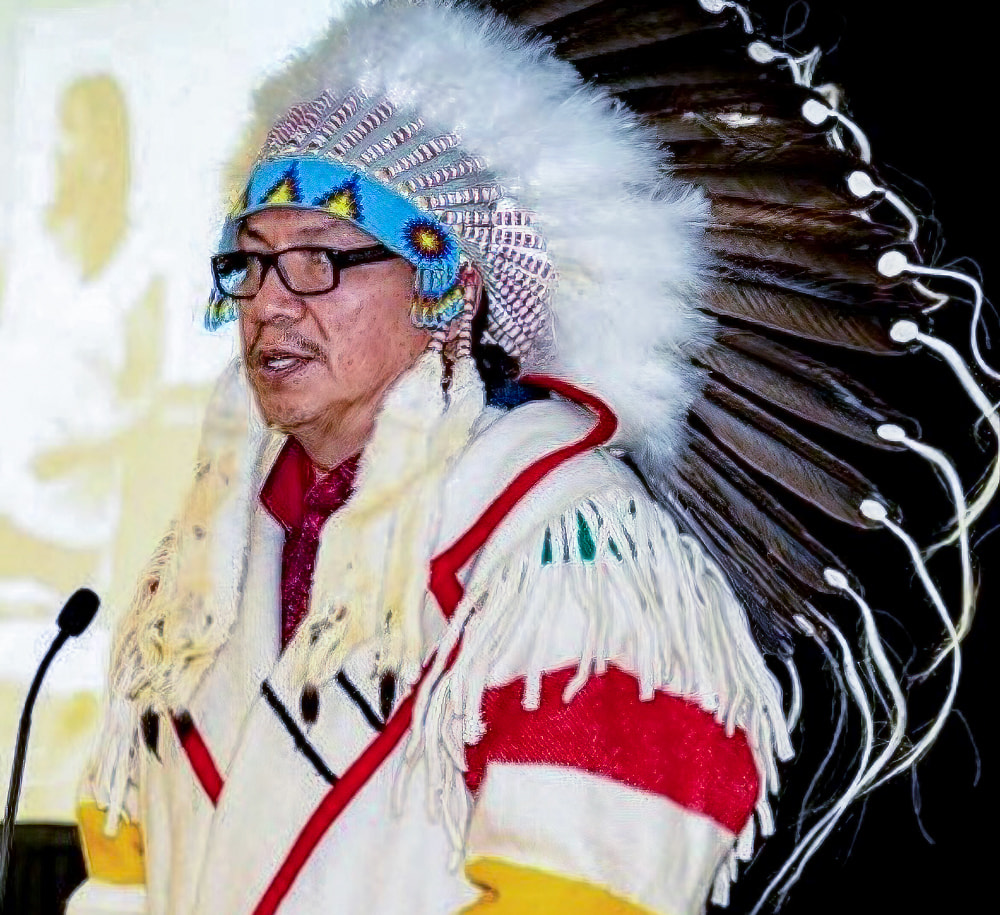Siksika Elder Eldon Weasel Child says that, when his father first held him in his arms, he promised: “This one is going to speak nothing but Blackfoot for his first few years so he can visit with his grandparents.”
That was 60 years ago, and Weasel Child did spend his childhood learning from his grandparents and older relatives. After he graduated from university he worked as a Blackfoot historian. “My job was to spend time with Elders,” he says. “That was my dream job.”
Weasel Child went on to become a cross-cultural educator, tribal historian, powwow and country music singer, and an elected councillor for both the Siksika Nation and the Blackfoot Confederacy. He even called a few Calgary Flames games in his language.
That’s why, when Weasel Child was asked to partner with U of A researchers on a wellness project for his nation, he knew just where to start.
“In order to be healthy, you have to know who you are,” he says.
Weasel Child is ensuring cultural knowledge will be passed along to younger people in his community through a pilot project co-designed with researchers from the University of Alberta. Healthy Fit and Strong - Changing the Story for Indigenous Youth and Young Adults is running in four Alberta Indigenous communities thanks to funding from the Canadian Institutes of Health Research.
“First Nations people are looking at different ways of healing — from the residential school system, from being put on reservations, from literally changing our mindset and the landscape we once knew,” says Weasel Child. “It’s like we need to reintroduce the youth to the land because a lot of our cultural teachings are derived from the land. I saw this as a real opportunity to help with that.”
The program is based on the CHANGE Health Community Program, which has worked with more than 300 Alberta families since 2019. A preventive wellness program, it was developed by family medicine professor Doug Klein with founding sponsorship from Alberta Blue Cross.
“The people I was seeing in my Edmonton practice were getting sicker, with more weight problems, diabetes, cholesterol issues,” says Klein, a member of the Women and Children’s Health Research Institute.
He took part in a research project that showed that diet and exercise could help reverse these problems, known collectively as “metabolic syndrome.”
But he wanted to do more. “I thought, ‘If we can reverse metabolic syndrome, then let’s actually prevent it. Let’s help youth and families develop basic life skills around eating, meal preparation, physical activity, mental health and social connection.’”
“We start with building relationships”
Pilot projects are being set up with Alexis Nakota Sioux Nation, Enoch Cree Nation, Siksika and in Calgary with help from elders, with the goal of reaching about 150 families. Activities are tailored by and for each community — for example, an Alexis Nakota Sioux elder is leading “powwow aerobics” classes. In another community, participants will learn about the benefits of being physically active as they hunt and gather traditional foods to try in new recipes. They will also get suggestions for grocery store substitutes to make sure it’s practical and accessible to everyone regardless of their ability to pursue a traditional diet.
At Siksika, Weasel Child says he expects about 20 people to participate: teenagers who have a newfound interest in their culture and adults who Weasel Child says feel cheated out of their heritage. They will join elders in ceremonies, walk with them on Siksika land and learn about the medicinal value of native plants, prepare feasts and eat together.

